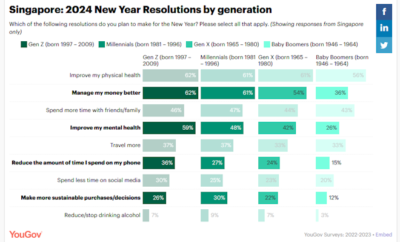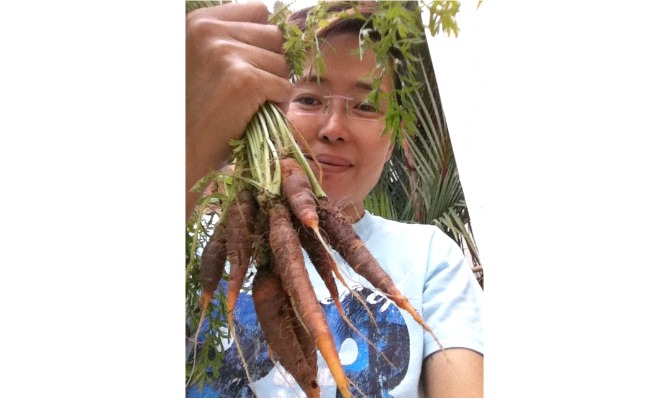
Insights + interviews
In Conversation With Permaculture Consultant, Debbie Han On Urban Farming
Permaculture consultant, Debbie Han shares about the benefits of growing our own vegetables at home; while nutritionist, Jolene Choo, enlightens us on their nutritional benefits.
Do you know where your vegetables come from beyond that of the supermarket? If you don’t, fret not, because many of us – both young and old – are equally as clueless.
The reality is that Singapore struggles to feed itself with its huge reliance on imported food products (over 90 percent), and we are vulnerable to food shortages and price fluctuations. While the Agri-food & Veterinary Authority of Singapore (AVA) has vowed to raise Singapore’s self-sufficiency for selected food products, permaculture consultant and founder of Co-create Nature, Debbie Han (DH), offers us an alternative solution that hits a little closer to home.
Urban farming may sound like an impossible task in our tiny island, but Debbie shares how easy it is to grow our own vegetables in the comforts of our homes – and even the tiniest of flats.
She will also be hosting an “Eat Your Garden” workshop on 27 August 2016 at Hotel Jen Orchardgateway for those interested to learn how to grow their own garden.
We got Debbie to share some of the benefits of urban farming (at home); while Jolene Choo (JC), Nutritionist and Healthcare Management Manager of Ronghua Health Recovery Centre, sheds light on the nutritional value of these home-grown vegetables.
AA: Hi Debbie, can you tell us more about urban farming and how we can grow our own produce at home?
DH: I believe that we can still learn a lot from Nature even if we live in a largely urbanised environment. Gardening is one of the best ways to understand how urban farming works. As a permaculture consultant and designer, I would say the main principle is to create a cycle of self-sustainability when growing your own food.
Urban farming is a way we can reconnect ourselves with Nature again. We can only do so if we start changing our mind-set around what consumption does to the world, and how designing a sustainable life can benefit our Earth.
If successful, we not only learn to take care of ourselves through eating healthier (because you know exactly what has gone into your produce), we also take care of the world around us by making better informed decisions in our consumption and the impact it involves.
In Singapore, growing our own produce requires just a little bit of space and some daily dedication. A standard HDB balcony works really well, especially if there are good periods of sunlight there. I would say that even the busiest of Singaporeans can commit just 15 to 30 minutes to grow their garden well.
AA: Besides the impact it has on addressing some of Singapore’s food security challenges, could you share some of the benefits urban farming has on our mental health and overall wellbeing?
DH: Regular involvement in gardening or community food-growing projects can help people with or without mental health problems or difficult personal circumstances in the following ways:
- Improves social interactions and community cohesion
- Reduces occurrence and severity of stress, as well as associated depression
- Improves alertness, cognitive abilities and social skills
- Alleviates symptoms of dementia and Alzheimer’s disease, such as agitation and aggressive behaviour, which can in turn improve circumstances for careers
- Helps with managing the distress that comes with mentally-challenging circumstances (eg. loss of a loved one)
AA: What are some tips and tricks you would offer for beginners who want to get started on growing their own produce at home?
DH: The types of plants you can grow largely depends on the amount of sunlight available at the location you want to grow them. Those that grow well or thrive best in our balconies are of course the local ones (like our Southeast Asian herbs and spices), which can be grown in pots.
For beginners who want to grow their own vegetables, I would recommend working with Xiao Bai Cai (Bok Choy), Sweet Potato leaves, Brinjal and Ginger.
For vegetables that are fuss-free and low maintenance, I would always recommend the ginger family – Blue Ginger, Turmeric, Yellow Ginger and Sand Ginger, because they don’t require a lot of sun and watering. What one cannot give in time, one can wait 12 months for the ginger to mature.
–
Besides knowing what goes into our produce, growing and consuming our own organic vegetables also means we get full access to the multitude of nutritional benefits they offer.
Based on Debbie’s list of recommended easy-to-grow vegetables, Jolene Choo, Nutritionist and Healthcare Management Manager of Ronghua Health Recovery Centre, gives us more information on each of their nutritional components:
Bok Choy
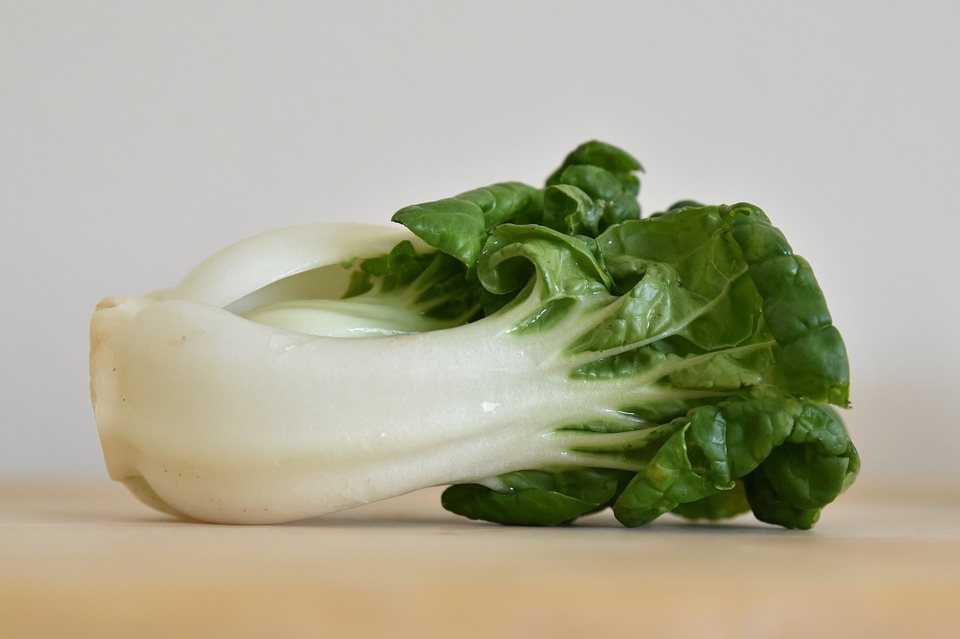
One cup of raw bok choy (approx. 87g) provides:
- 60.0 mg of Vitamin C
- 219.0 mg of potassium.
The Vitamin C in Bok Choy helps to activate the liver-detoxifying system, inhibits formation of carcinogenic compounds and protects cellular functions. This vitamin is also vital for our bones and teeth, blood vessels, healing of wounds and promotes iron absorption. Potassium helps in regulating body water content, supports nerve and muscle function, as well as blood pressure control. Bok Choy also contains other antioxidants such as lutein and zeaxanthin.
Sweet Potato Leaves (shoots)

One cup of raw sweet potato leaves (approx. 76g) provides:
- 81.1 mg of Vitamin C
- 585.0 mg of Vitamin A (retinol) equivalent.
Vitamin A (an antioxidant) helps to maintain our vision both in the day and in the night. This is especially important for diabetic patients as it helps prevent complications such as retinopathy (retina disease that leads to blindness). This vitamin is also essential for building a stronger immune system and preventing cancer.
Brinjal/Egg Plant
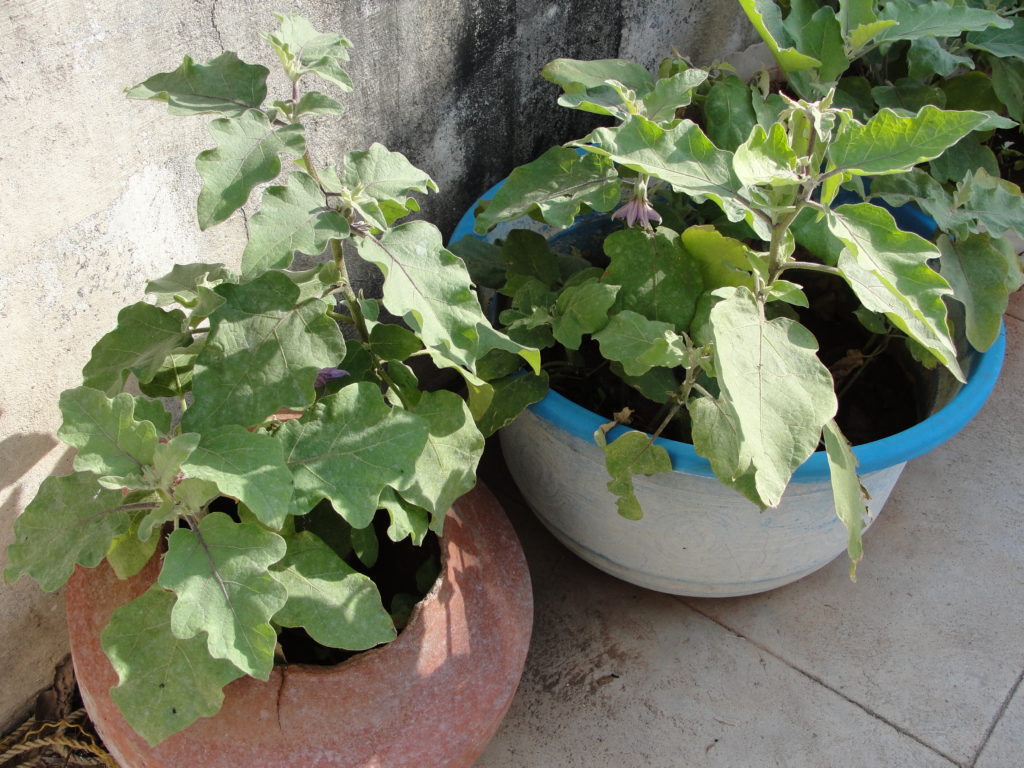
One cup of raw brinjal (approx. 86g) provides:
- 80.0 mg of Vitamin C
- 0.07mg of Vitamin B1 (Thiamine)
Thiamine supports a healthy nervous system and is essential for supporting normal glucose metabolism (the conversion of glucose to energy). Eggplant is also a high-fibre and low-carb vegetable that aids greatly in the support of healthy blood sugar levels. The antioxidant activity and alpha-glucosidase inhibitory potential of eggplant could also slow down the absorption of sugars into the bloodstream.
Yellow Ginger
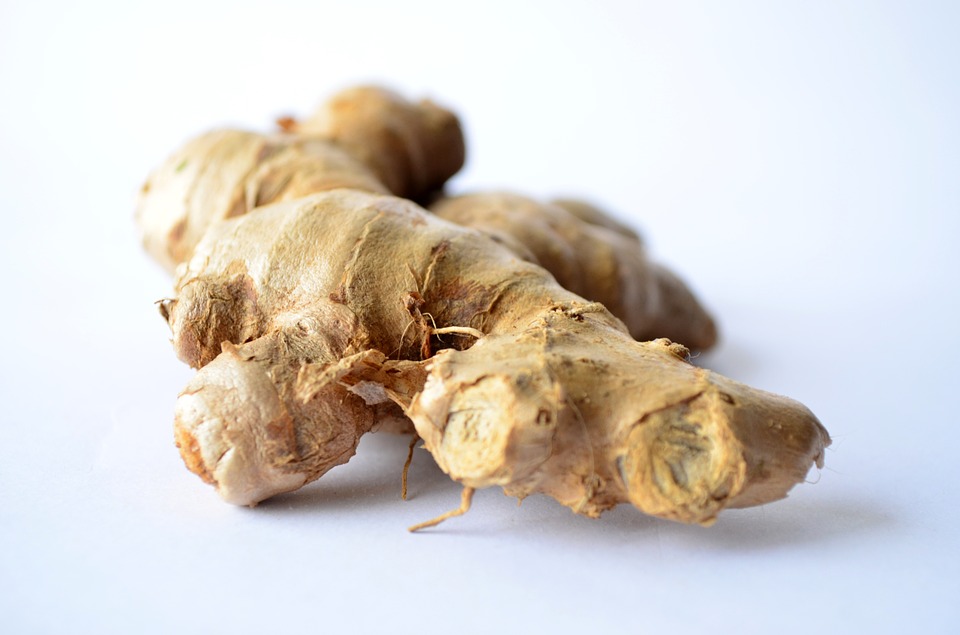
One cup of raw yellow ginger (approx. 97g) provides:
- 125.0 mg of potassium
- 0.7mg of Vitamin B3 (Niacin)
On top of its high potassium content, niacin supports energy metabolism, normal function of the nervous system, and normal psychological functions. Sufficient intake of niacin can also help reduce fatigue and tiredness.

